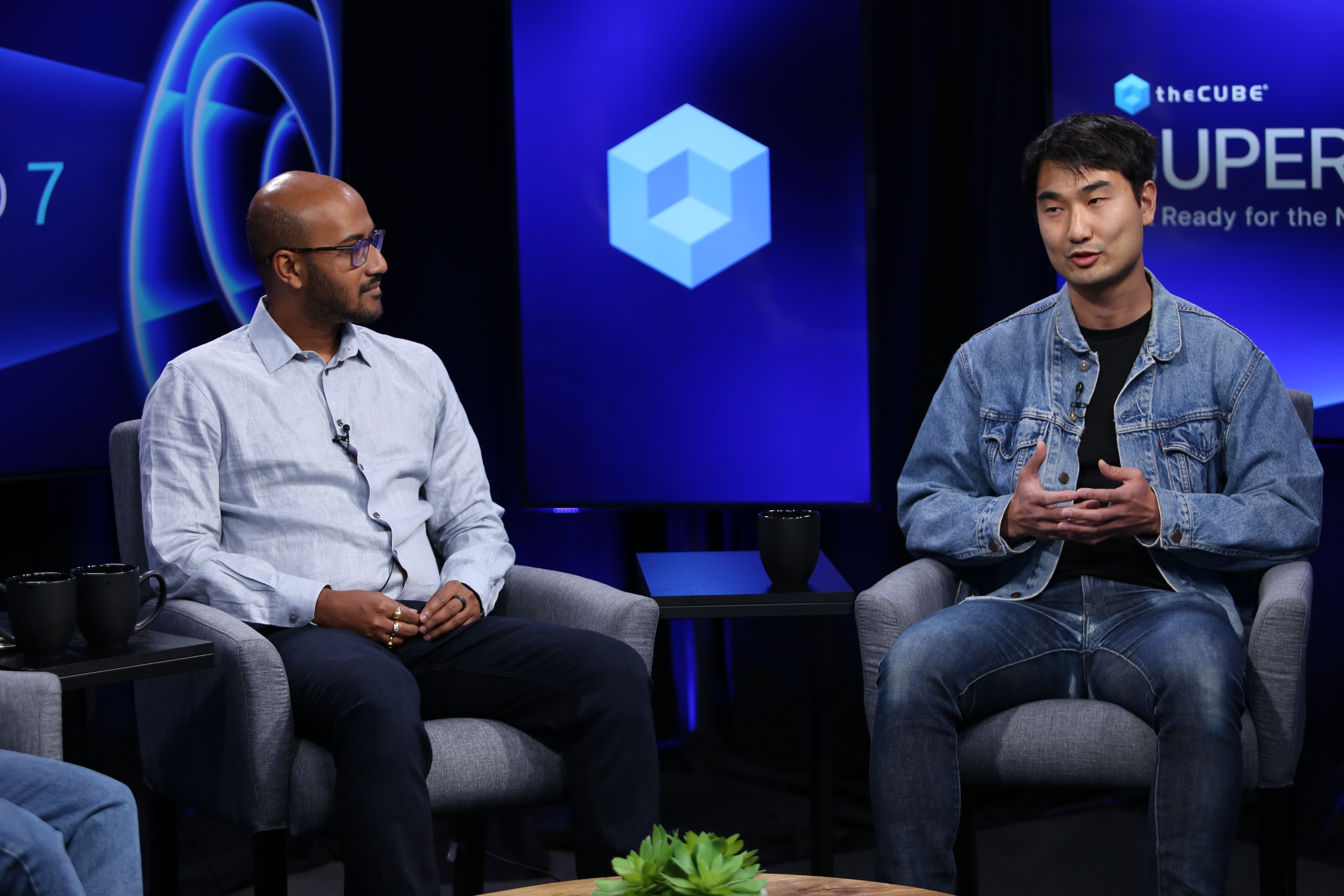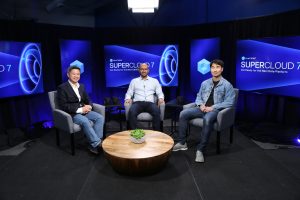 AI
AI
 AI
AI
 AI
AI
Even though the past year has been declared the beginning of an artificial intelligence era, AI use cases are not being deployed on a large scale as quickly as people expected. The diverse complexity and scale of these use cases underscore the fallacy of a “one size fits all” approach.
The varying demands of different industries and applications require tailored solutions, highlighting the need for a more nuanced understanding of AI implementation. As companies navigate this changing landscape, the promise of AI remains significant, but its integration is proving to be a more gradual process, according to Diptanu Gon Choudhury (pictured left), founder of TensorLake Inc., and Simon Suo (right), co-founder and chief technology officer of LlamaIndex Inc.

TensorLake’s Diptanu Gon Choudhury and LlamaIndex’s Simon Suo discuss the future of AI use cases with theCUBE’s Howie Xu.
“We have this expectation for this technology to solve a lot of our problems and I think that’s not really the greatest starting point … to drive success. I think when people think about LLMs and data, there are a full spectrum of different use cases they’re trying to tackle that have different challenges,” Suo said. “We’ve not paid enough attention about deeply understanding the business use case, how much cost and latency we can afford for each of those and allocating the right amount of engineering resources and build[ing] the right tools for those different use cases.”
Suo and Choudhury spoke with Howie Xu, theCUBE guest host and a member of the CUBE Collective, at the Supercloud 7: Get Ready for the Next Data Platform event, during an exclusive broadcast on theCUBE, SiliconANGLE Media’s livestreaming studio. They discussed the potential of AI use cases and the process of integrating machine learning into the business pipeline.
The first, widely-discussed challenge to AI adoption is data management. Companies are having to rethink data architecture, much of which can be siloed off or unstructured and difficult to plug into large language models.
“We have, as an industry, done amazing in making it easy for developers to tinker with LLMs, LlamaIndex, especially … What people usually want is they want LLMs to know everything about their enterprise, their customers and so on. That’s the holy grail of gen AI application that people are generally trying to get to,” Choudhury said. “In an enterprise, data lives in a lot of different places. Data is of different shapes. And so the same demo that really works well on a notebook doesn’t work in production because of … the messiness of the data.”
LlamaIndex has developed a generative AI platform for enterprises. Meanwhile, TensorLake is working on the “Indexify” project, which aids software engineers in building pipelines to handle unstructured data in LLMs. Both Suo and Choudhury are keenly aware of AI’s potential to revolutionize businesses.
“We’re pretty optimistic about a lot of the repetitive workflows already being automated fairly reliably,” Suo said. “I think one concrete example is being able to extract financial information from documents and automatically build these financial models, which previously will take a financial analyst, maybe a full day to kind of scrub [that] information manually … and now it’s in the order of like minutes.”
Suo and Choudhury each started out with open-source projects before shifting to founding their current companies. Both leaders still value accessibility and have kept some software open source, even as they focus on creating highly orchestrated workflows for their customers.
“It’s very important to give people access and educate them in some of the best practices in how to build these applications as well as cutting edge or newer ideas that can inspire new ways of building software,” Suo said. “Going towards a cloud product, I think it’s really about ease of use … for our cloud product we’ve been also very focused on structured data … it’s just a little bit harder to deliver in an open-source setting.”
Although any software has a timeline of gradual adoption into the marketplace, Choudhury believes the cycle is going to be faster for AI due to the rise of software-as-a-service companies. This shift has allowed engineers to accelerate their development process with unprecedented speed.
“People are treating unstructured data as an API,” he said. “Whatever data was for human consumption is now ready to be consumed by software and having the ability for LLMs to reason and we have gone from chain of thoughts to like tree of thoughts to like so many different algorithms which relate to cognition. It has just opened up … the possibility of software to be more malleable in ways that we have never seen.”
Here’s the complete video interview, part of SiliconANGLE’s and theCUBE Research’s coverage of the Supercloud 7: Get Ready for the Next Data Platform event:
Support our mission to keep content open and free by engaging with theCUBE community. Join theCUBE’s Alumni Trust Network, where technology leaders connect, share intelligence and create opportunities.
Founded by tech visionaries John Furrier and Dave Vellante, SiliconANGLE Media has built a dynamic ecosystem of industry-leading digital media brands that reach 15+ million elite tech professionals. Our new proprietary theCUBE AI Video Cloud is breaking ground in audience interaction, leveraging theCUBEai.com neural network to help technology companies make data-driven decisions and stay at the forefront of industry conversations.